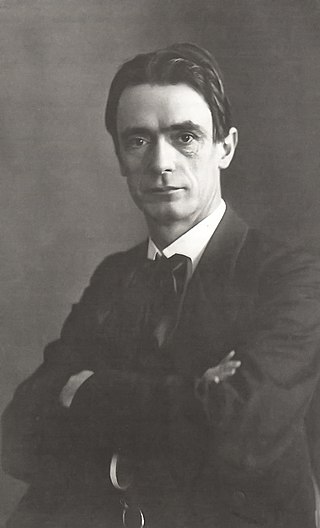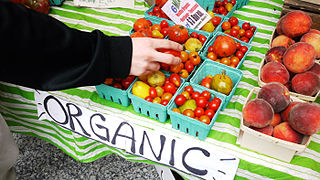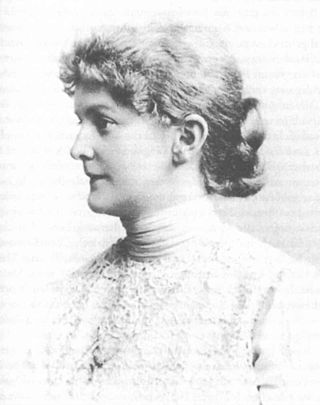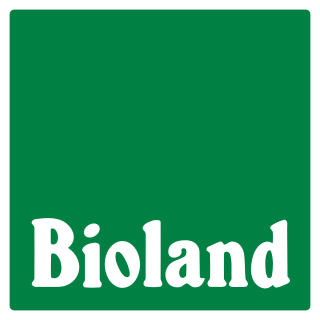Anthroposophy is a spiritual new religious movement which was founded in the early 20th century by the esotericist Rudolf Steiner that postulates the existence of an objective, intellectually comprehensible spiritual world, accessible to human experience. Followers of anthroposophy aim to engage in spiritual discovery through a mode of thought independent of sensory experience. Though proponents claim to present their ideas in a manner that is verifiable by rational discourse and say that they seek precision and clarity comparable to that obtained by scientists investigating the physical world, many of these ideas has been termed pseudoscientific by those outside the movement.

Rudolf Joseph Lorenz Steiner was an Austrian occultist, social reformer, architect, esotericist, and claimed clairvoyant. Steiner gained initial recognition at the end of the nineteenth century as a literary critic and published works including The Philosophy of Freedom. At the beginning of the twentieth century he founded an esoteric spiritual movement, anthroposophy, with roots in German idealist philosophy and theosophy. His teachings are influenced by Christian Gnosticism. Many of his ideas are pseudoscientific. He was also prone to pseudohistory.

Organic farming, also known as ecological farming or biological farming, is an agricultural system that uses fertilizers of organic origin such as compost manure, green manure, and bone meal and places emphasis on techniques such as crop rotation and companion planting. It originated early in the 20th century in reaction to rapidly changing farming practices. Certified organic agriculture accounts for 70 million hectares globally, with over half of that total in Australia. Biological pest control, mixed cropping, and the fostering of insect predators are encouraged. Organic standards are designed to allow the use of naturally-occurring substances while prohibiting or strictly limiting synthetic substances. For instance, naturally-occurring pesticides such as pyrethrin are permitted, while synthetic fertilizers and pesticides are generally prohibited. Synthetic substances that are allowed include, for example, copper sulfate, elemental sulfur, and veterinary drugs. Genetically modified organisms, nanomaterials, human sewage sludge, plant growth regulators, hormones, and antibiotic use in livestock husbandry are prohibited. Organic farming advocates claim advantages in sustainability, openness, self-sufficiency, autonomy and independence, health, food security, and food safety.

The organic movement broadly refers to the organizations and individuals involved worldwide in the promotion of organic food and other organic products. It started during the first half of the 20th century, when modern large-scale agricultural practices began to appear.

Organic certification is a certification process for producers of organic food and other organic agricultural products, in the European Union more commonly known as ecological or biological products. In general, any business directly involved in food production can be certified, including seed suppliers, farmers, food processors, retailers and restaurants. A lesser known counterpart is certification for organic textiles that includes certification of textile products made from organically grown fibres.

The Soil Association is a British registered charity, working to transform the way Britain eats, farms and cares for the natural world. It was established in 1946. Their activities include campaigning for local purchasing, public education on nutrition and certification of organic foods, and against intensive farming.
IFOAM – Organics International is a worldwide organization advocating for organics, with over 700 affiliates in more than 100 countries and territories.
Biodynamic agriculture is a form of alternative agriculture based on pseudo-scientific and esoteric concepts initially developed in 1924 by Rudolf Steiner (1861–1925). It was the first of the organic farming movements. It treats soil fertility, plant growth, and livestock care as ecologically interrelated tasks, emphasizing spiritual and mystical perspectives.
Biodynamic wines are wines made employing the biodynamic methods both to grow the fruit and during the post-harvest processing. Biodynamic wine production uses organic farming methods while also employing soil supplements prepared according to Rudolf Steiner's formulas, following a planting calendar that depends upon astrological configurations, and treating the earth as "a living and receptive organism."

Traditional farming was the original type of agriculture, and has been practiced for thousands of years. All traditional farming is now considered to be "organic farming" although at the time there were no known inorganic methods. For example, forest gardening, a fully organic food production system which dates from prehistoric times, is thought to be the world's oldest and most resilient agroecosystem. The industrial revolution introduced inorganic methods, most of which were not well developed and had serious side effects. An organic movement began in the 1940s as a reaction to agriculture's growing reliance on synthetic fertilizers and pesticides. The history of this modern revival of organic farming dates back to the first half of the 20th century at a time when there was a growing reliance on these new synthetic, non-organic methods.

Marie Steiner-von Sivers was a Baltic German actress, the second wife of Rudolf Steiner and one of his closest colleagues. She made a great contribution to the development of anthroposophy, particularly in her work on the renewal of the performing arts, and the editing and publishing of Rudolf Steiner's literary estate.

Ehrenfried Pfeiffer was a German scientist, soil scientist, leading advocate of biodynamic agriculture, anthroposophist and student of Rudolf Steiner.
The Biodynamic Association is a United States-based company that promotes Biodynamic agriculture system through educational and research programs and has headquarters in Milwaukee, Wisconsin.

The China Green Food Development Center is the first agency in the People's Republic of China to oversee organic food standards. The Center was established in November 1992 under the jurisdiction of the Ministry of Agriculture of the People's Republic of China. The CGFDC joined the International Federation of Organic Agriculture Movements(IFOAM)in 1993. It is headquartered in Beijing, where its general office and divisions of logo management, authentication, sci-tech and standards, planning and finance, and international cooperation are located. Currently, the CGFDC has set up 42 local food regulatory agencies, commissioned 38 quality inspection agencies, and 71 green food producing environmental monitoring branches. Its basic purpose is to promote the development of food that prioritizes safety, to protect the environment, and to maintain the development of economy and society. Its main responsibilities include: developing Green Food generation policies; regulating organizations that develop green food standards; organizing and guiding the development and management of Green Food; trademark green logo management; review and approval of green flag products; and organizing research, technology promotion, training, advocacy, information services, green building demonstration bases, and foreign economic and technological exchanges and cooperation. The CGFDC's main partners consist of China Organic Food Certification Center, State Food and Nutrition Consultant Committee, Food and Agricultural Organization of the United Nations and Development Research Center of the State Council as well as some media networks as supporters. It has published reports including the " Green Food Products Bulletin","Green Fashion", and "Brief Report of the Center."

Elisabeth Vreede was a Dutch mathematician, astronomer and anthroposophist.
Marjorie Spock was an environmentalist, writer and poet, best known for her influence on Rachel Carson when the latter was writing Silent Spring. Spock was also a noted Waldorf teacher, eurythmist, biodynamic gardener and anthroposophist.

Weleda is a multinational company that produces both beauty products and naturopathic medicines. Both branches design their products based on anthroposophic principles, an alternative medicine.

Organic farming in New Zealand began in the 1930s and became more popular in the 1980s. It has gained importance within the farming market, particularly with the recent involvement of larger companies, such as Wattie's.

Bioland is the largest organic-food association in Germany. Its organic certification standards exceed EU minimum requirements.
Margaret Cross was a British educator and school principal, a pioneer of Co-education and of Steiner Waldorf education in Britain as well as of Biodynamic agriculture. Together with Hannah Clark she founded the Kings Langley Priory School, later the Rudolf Steiner School Kings Langley, which was closed in March 2019.












